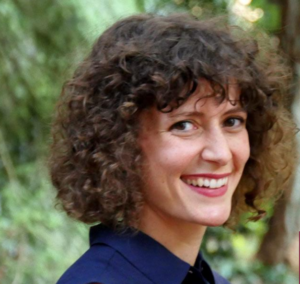
- This event has ended.

For years, there has been a massive global market for blood plasma products; a development that raises significant questions regarding the relationship between blood services, economic development, and the provision of health care. In 2020, a market in convalescent blood plasma developed as a potential treatment for COVID-19. During this time, commercial plasma centers — which collect the blood plasma from paid donors for pharmaceutical production — paid recovered patients as much as $100 for a donation of blood plasma containing COVID antibodies, from which they manufactured an experimental treatment.
In this talk, “An economy of immunity: race, exposure, and the spatial lives of antibodies in the American plasma economy,” Kelsey Johnson will use the commercial collection of COVID antibodies found in plasma as an entry point into exploring the racial commodification of disease exposure. In the first part, she considers the spatial history of antibody-derived plasma products, using historical research to examine how inmates at predominantly Black plantation-prisons in the U.S. South were valued for antibody production in the 1960s. Against this historical relief, in part two I examine the spatiality of antibodies in the current practices of the plasma industry, as well as the potential racialization of immunity at work in the plasma industry’s response to the COVID-19 pandemic (even as those efforts eventually failed in clinical trials).
Here Johnson builds on geographical literatures on toxicity and environmental exposure, as well as recent discussions that link COVID exposure to everyday geographies of racial capitalism. But if these discussions theorize exposure as an outcome of unequal class/social relations and geographies, they have said less about how racially uneven exposure may also constitute novel sites and sources of capital accumulation that are, as I discuss here, profoundly useful to different forms of biomedicine. By critically scrutinizing the practice of “sharing immunity” and attending to its decidedly geographic constitution, Johnson suggests that what Ruth Gilmore calls the “death-dealing logics” of racial capitalism also work through the seemingly affirmative practices and communal imaginaries behind the redistribution of antibodies as medicine.
Kelsey Johnson is a Social Science and Humanities Research Council and Faculty of Arts and Science Postdoctoral Fellow in the Department of Geography and Planning at the University of Toronto. She holds a Ph.D. in geography from the University of British Columbia.
